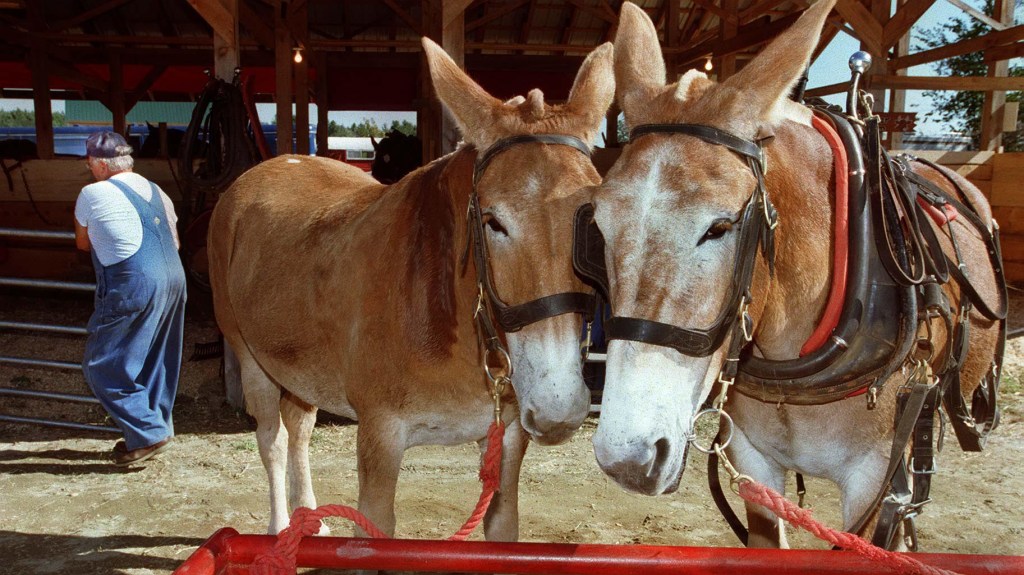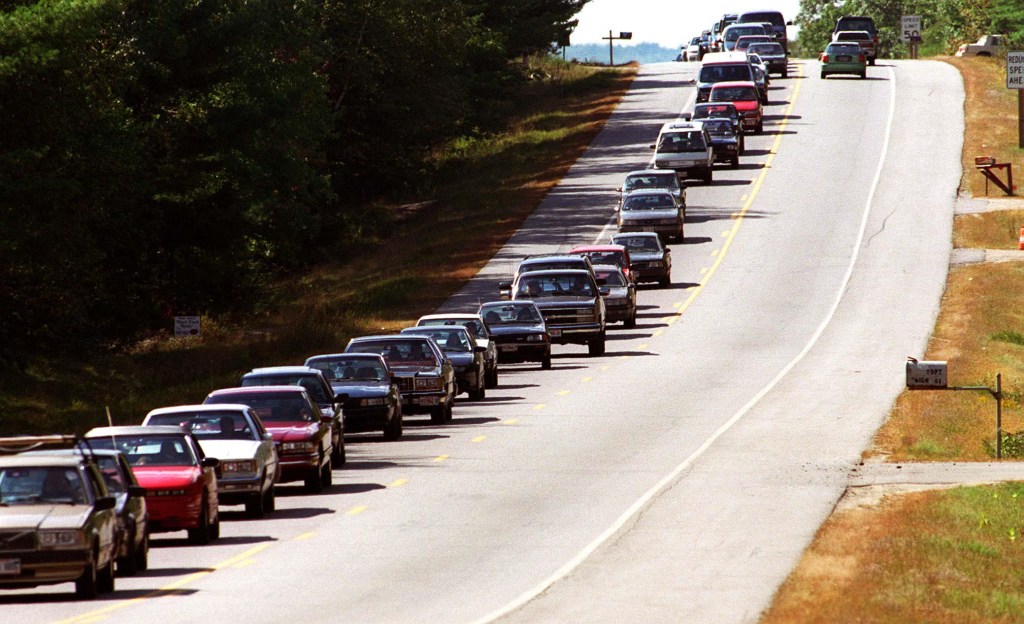
For a few days each September, the town of Unity swells to more than 30 times its size.
The western Waldo County community of about 2,000 residents sees tens of thousands of people trek to the annual Common Ground Country Fair to watch horse-harnessing demonstrations, twirl at contra dances and connect with people across Maine’s agricultural industry.
Interest has grown steadily since the fair started almost 50 years ago. But it has reached new heights in the last three years, after returning from a hiatus during the pandemic — and a decline in popularity leading up to it.
In 2024, more than 70,000 people attended the event run by the Maine Organic Farmers and Gardeners Association, or MOFGA.
If the good weather forecasts hold out, organizers have high hopes that this year’s fair, on Sept. 19-20, will be another record-breaker.
April Boucher, the event’s director, said veteran fairgoers and social media are to thank for heightened demand.
“Word of mouth has grown,” she wrote in an email. “As the number of participants has grown … word reaches a wider audience through their networks.”

GROWING INTEREST
The first year of the fair, 1977, drew 10,000 attendees to Litchfield, its original home base in central Maine. That figure doubled to 20,000 the next year.
By the time MOFGA established its headquarters in Unity in 1998, over 48,200 people broke in the fairgrounds, according to the nonprofit.
It hasn’t been a straightforward story of growth. Attendance dropped from over 63,000 in 2017 to 58,000 in 2018, to 54,500 in 2019. Then it came to a screeching halt in 2020 at the start of the COVID-19 pandemic, and spent two years online.
When the in-person festivities returned, interest bounced back hard, drawing 67,858 people in 2022; 64,162 in 2023; and last year, an all-time-high of 69,424.
EARLY SALES
MOFGA hasn’t capped the number of people welcome on the fairgrounds, and Boucher doesn’t believe the organization needs to — yet. The fair is held on 45 acres within MOFGA’s 200-plus acre property, and there is an opportunity to expand.
The organization encourages alternative forms of transportation, like carpooling, biking and riding the Belfast and Moosehead Lake train to Unity or Thorndike.
“We are always making changes and looking for ways to increase comfort for fairgoers, use our space better, and support a safe Fair,” Boucher said.
She feels confident that at least 60,000 people will show up later this month — MOFGA has correctly predicted the count in recent years. Early ticket sales have outpaced 2024 so far.
As of Tuesday, MOFGA sold 3,464 advanced tickets, compared with 2,527 by the same time last year. People can also volunteer for shifts running demonstrations or working in the kitchen in exchange for tickets. Boucher said MOFGA has filled 90% of the 3,900 volunteer shifts it opened up this year, compared with 2,211 volunteers last year.
Boucher is hoping these numbers are a sign.
BEYOND THE FAIRGROUNDS

David Wakefield, vice-chair of the Unity Select Board, has only been to one Common Ground Country Fair: in 1998, when MOFGA made its first appearance in the town. He’s not a fan of fairs and their crowds.
He said 1998 was a busy year, and Unity was overwhelmed by traffic.
Since then, Wakefield has watched from afar. And he’s seen the fair’s economic impact spread downtown and into nearby neighborhoods.
But even at his home miles from the fairgrounds, Wakefield still has a front-row seat to its changing impacts.
The roadway traffic of 1998 has shifted to pedestrian traffic, he said. Fairgoers have added trips into downtown Unity to their yearly Common Ground rituals. And locals have benefited from that inflow.
“The convenience store has sold out of things, gas pumps are busier, local growers at the community markets thrive on that weekend, independent land owners rent their space for parking and shuttle people over,” Wakefield said. “There’s a lot of tentacles to it.”
Unity has seen a lot of change in recent years. On-campus residents at Unity Environmental University, formerly called Unity College, dropped significantly in 2020 at the start of the COVID-19 pandemic, and local residency rates never rebounded.
Unity Environmental University formally left the Unity campus in fall 2024.
That took the college’s students and their wallets to a new headquarters and smaller campus for in-person learning at Pineland Farms in New Gloucester.
Wakefield and his neighbors are grateful Common Ground is there to soften the blow.
“The economic impact is immeasurable,” he said. “Even though it’s for a few short days, it certainly makes a difference in peoples lives.”
Editor’s note: This story was updated Sept. 16 to reflect that Unity Environmental University left its Unity campus in 2024.
